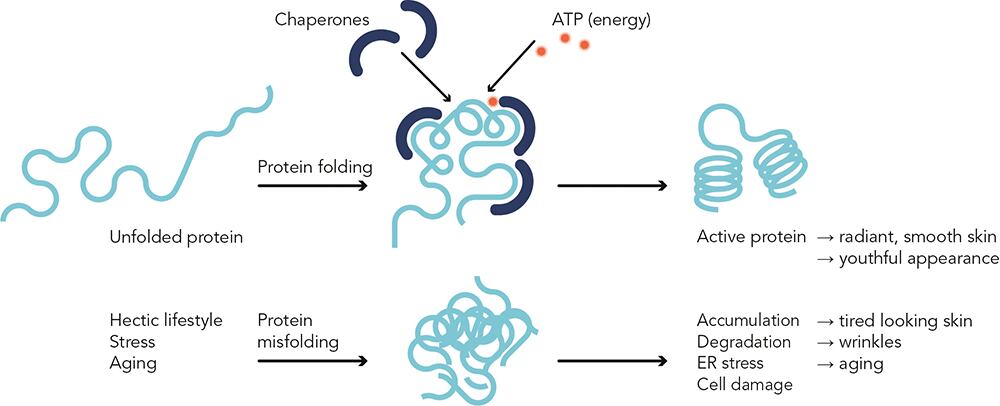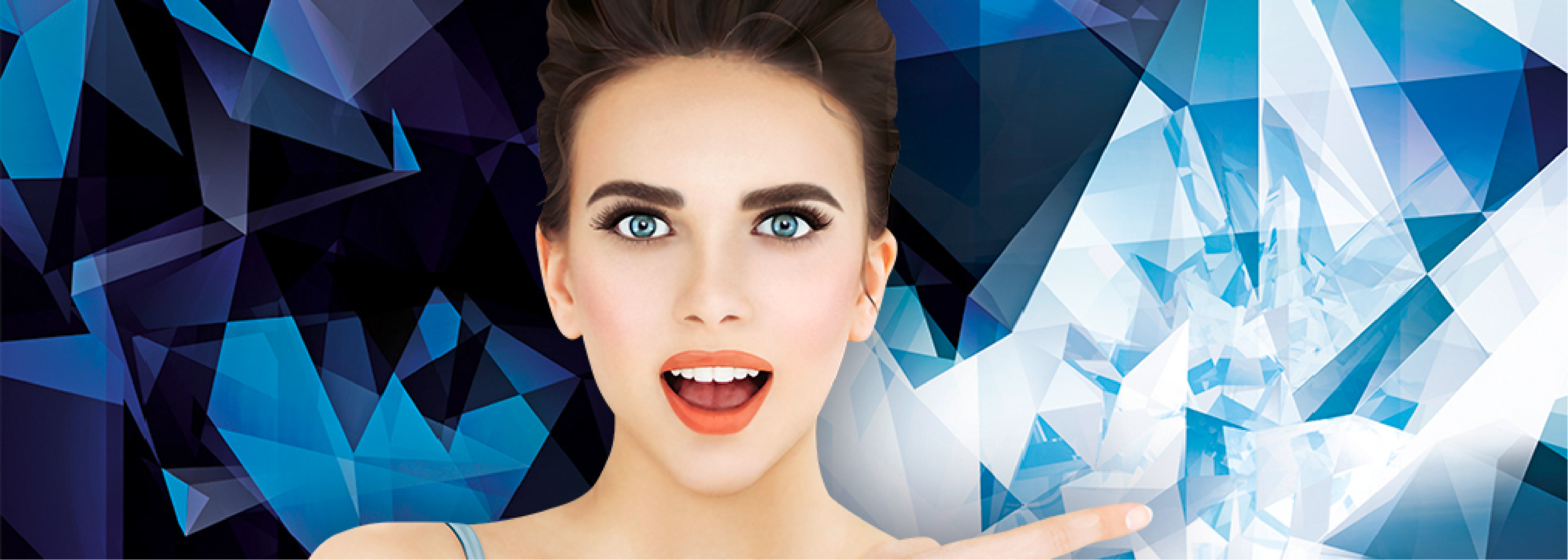In today’s society, lack of sleep due to long working hours and a hectic lifestyle is a common phenomenon. Sleep deprivation also majorly affects the skin, which is most obviously reflected by a tired appearance of the face after a night with low sleep quantity and/or quality. Although young individuals can recover quickly from this, it is important to note that prolonged sleep deprivation acts as a general aging factor like UV-irradiation or oxidative stress, leading to long term negative effects in the skin.
But what happens in our cells when we do not sleep enough? The correct production of proteins is affected. It is important that during their production, proteins need to be correctly folded to perform their intended function. There are helper proteins called chaperones that assist in this folding process. To combat the stress from lack of sleep more chaperones are needed to cope with the stress and aid in regeneration and repair of the cell. However, in aged cells, chaperone production is reduced, and the cell fails to efficiently prevent protein misfolding. In addition, these chaperones require ATP, the cellular energy currency, to function properly. In sleep deprived cells, less ATP is available, and chaperones cannot fulfil their protein-folding function properly. The resulting wrongly folded proteins accumulate, cause more stress and further damage the cell. Therefore, improving the flawless folding of proteins and increasing ATP levels results in a rejuvenated and fresh appearance despite a hectic lifestyle.

Swiss glacier bacteria reawakened
Extremophile organisms are masters of survival by being able to adapt to conditions generally considered as hostile to life. In order to adapt to these conditions, extremophiles developed various strategies which help them cope with these stresses. To discover and harvest novel extremophile microorganisms for use in cosmetics, an expedition was undertaken to a glacier in Valais, Switzerland. Due to the constant shrinking of glaciers in the past decades, microbes that have previously been hidden below a permanent layer of ice are now accessible. Samples taken from the soil were analyzed for their microbial content. This led to the identification of Iodobacter ssp., a cold tolerant rod-shaped bacterium, which has been reawakened after many years below the glacier ice layer. Large scale cultivation and extraction of the Iodobacter ssp. strain followed by spray-drying the extract on a maltodextrin carrier yields the active ingredient IceAwake.
IceAwake rejuvenates sleep-deprived skin
IceAwake contributes to the improvement of correct protein folding, reduces stress and stimulates energy production in vitro in sleep-deprived cell models. Treatment of aged fibroblasts with Iodobacter ssp. extract increased the expression of several chaperones essential for flawless protein production. Furthermore, a cellular model of sleep deprivation was used to show that Iodobacter ssp. extract reduces cellular stress and increases the production of the energy molecule ATP which is crucial for proper chaperone function. In two placebo-controlled clinical studies with Asian and Caucasian female and male volunteers with a hectic lifestyle and/or visible tiredness, IceAwake rejuvenated their appearance after 14 days by significantly reducing wrinkle depth and increasing radiance for a visibly less tired look.







